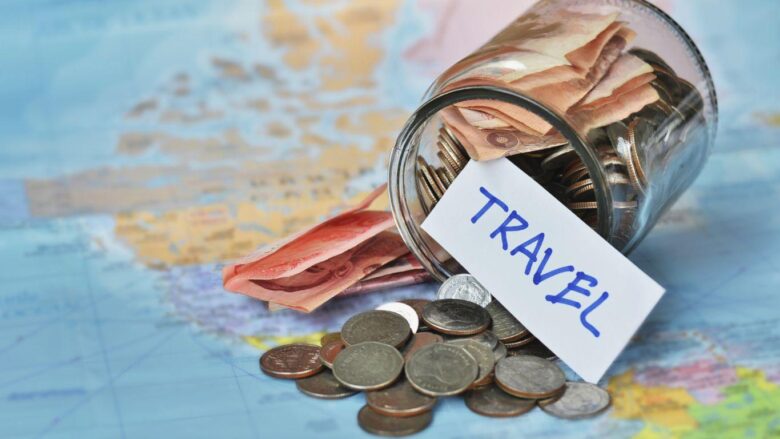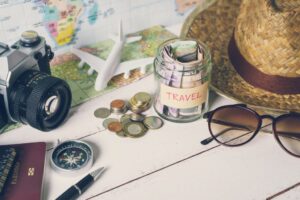Getting lost doesn’t have to be expensive. With good planning and a few smart choices, you can see more places, stay longer, and have unforgettable experiences without breaking the bank. The key is knowing how to save money on your trip without sacrificing truly valuable experiences.
Traveling Off-Season
A vacation can make or break your budget. Prices during peak season are often twice or even three times higher than in the off-season. Yet, these destinations are still beautiful, and sometimes even more exciting with fewer crowds. If you’re planning a trip to Europe, late fall or early spring are ideal times, as hotel prices drop significantly and popular attractions become more accessible. Beach resorts like those in the Caribbean offer significant discounts during the shoulder season, typically from late May to early June and late September to late November. Many restaurants, tours, and activities also have discounts during this time, giving you even more bang for your buck.
Accommodation Strategies
Accommodation is one of the most expensive aspects of travel, so there are many smart ways to save money. Many modern dorms offer private rooms with shared bathrooms for significantly less than hotels. These dorms aren’t just for students. Vacation rental sites like Airbnb are particularly suitable for longer stays or group travel, as you can cook for yourself and share the costs. Another interesting option is house sitting, where you stay for free but are responsible for taking care of someone else’s home and pets. For the more adventurous types, camping or glamping can offer unique experiences for a fraction of the cost of a hotel stay.
Travel Tips
Travel doesn’t have to break the bank. Budget flights have revolutionized the way people travel, but when comparing actual costs, consider baggage fees and potential hassles. Overland travel by bus or train is often cheaper than flying, and the scenic views along the way become part of the experience. In many cases, public transportation is more convenient than taxis or ride-sharing within the same city. Many places offer tourist passes that provide unlimited public transportation and discounts at attractions. Walking is free, and it’s easy to find attractions you might have missed from a car window.
Food, Drink, and Play
If you’re not careful, your food and drink expenses can quickly blow your budget over the limit. Local markets and street food offer authentic experiences at prices locals pay. You can cut your food costs in half by shopping at the supermarket and cooking simple meals like breakfast and lunch. If you absolutely must eat out, look for lunch specials at good restaurants. These are often just as delicious as dinner, but for a fraction of the price. There are even more ways to save money while experiencing authentic local culture, such as happy hour deals and visiting local shops away from tourist areas.
Activities and Entertainment
Free or affordable activities are available almost everywhere if you know where to look. Many museums offer free or discounted evenings. Tips can be used to organize walking tours, a great way to meet knowledgeable local guides and score deals. National parks, beaches, hiking trails, and other public spaces offer plenty of free entertainment. Check local event listings for free concerts, festivals, and cultural events to enjoy authentic experiences for free.
Use Tools and Resources
Technology has made many tools available to savvy travelers to save money. Flight comparison apps and websites can help you find the best fares and optimal booking times, saving you hundreds of euros. Even if you don’t travel often, membership programs can help you save money and get better seats, making your trip more enjoyable. If you use travel rewards credit cards wisely, you can earn points for future trips. Currency exchange apps help you find the best deals and avoid expensive airport exchange fees.
Maximizing Your Travel Investment
You can travel on a budget without sacrificing quality. Instead, choose wisely the experiences that matter most to you and come up with creative alternatives for everything else. Some travelers prefer to spend more on accommodation and less on food, while others prefer to focus on activities and settle for basic accommodations. It’s important to define your personal goals and spend accordingly.
Your most useful tool is your research. Taking the time to understand local customs, transportation systems, and hidden costs of your destination can help you avoid expensive surprises and find ways to save money. Online communities and travel blogs allow you to connect with other travelers and find insider advice and new ways to save money.
FAQs
1. How far in advance should I book my flight to get the best deals?
Booking domestic flights two to eight weeks in advance and international flights two to three months in advance generally gives you the most options and the best prices. Deals can appear at any time, so setting price alerts is a beneficial way to stay informed.
2. Is travel insurance worthwhile for budget-conscious travelers?
Yes, travel insurance can protect you against potentially costly expenses, such as medical problems or trip cancellations. Basic coverage typically covers 2% to 5% of your total travel costs, but in the worst-case scenario, it can save you a lot of money.
3. What’s the best way to manage your finances when traveling abroad?
Please notify your bank about your upcoming vacation, utilize ATMs within a broad network to minimize fees, and ensure you have cash available. For those who enjoy traveling, many banks offer accounts with lower fees for international transactions.
4. How do you find safe and reliable accommodations on a budget?
Read recent reviews carefully, view locations on a map, and book through reputable websites that protect their customers. If you’re unsure where to stay, hostels with good reviews are usually a safe and affordable option.
5. Should I exchange money before or after arriving at my destination?
In most cases, exchanging a small amount of cash before departure is sufficient for urgent needs. Afterward, you can exchange money at an ATM in your destination country. The exchange rate will likely be more favorable than at the airport or your hotel.




